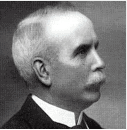‘The most Lamentable Comedy, and cruel death…’ (A Midsummer Night’s Dream)
The Scene: A large oak-panelled meeting room of the Globe theatre on a cold September morning in 1600. The evening before had seen the disastrous dress rehearsal of “Hamlet”. The audience had boo-ed the cast off stage. Rotten fruit had been thrown. Will Kemp, the actor, has resigned from the Globe in protest at the play being ‘Not Funny Enough’. A crisis meeting is in progress. Present are Shakespeare (writer); Marlowe, Jonson, Beaumont and Fletcher (in-house development team) and a Moorish Project Manager.
Amidst the amorphous drone of the meeting, Shakespeare looks bored, and possibly hungry. He is idly scrawling his name on his pad. Wil Shakspure he writes, but is not quite pleased and tries again: Will Shakespare. He leans back in his chair with one eye closed in order to examine his work. Still he looks discontented…
Shakespeare [soliloquy]: Writing is a mysterious process. Just when you think you have the hang of it, experience proves you wrong. Thank goodness I’ve always had such a good in-house development team. Marlow, Johnson, Beaumont and Fletcher have helped me turn out some excellent plays. A team with a proven track record is surely worth its weight in gold! But no, some cream-faced loon in the accounting house says we need to shave a few doubloons off the expense sheet and the next thing I know, the board of The Globe are ‘persuading’ me to offshore the whole play-writing process.
It started well enough, I suppose. The proposal broadsheet was beautifully printed and promised to [reading from document] ‘spearhead our business growth and place the Globe Theatre on the threshold of a new future.’ Having the plays written by Moorish experts would, they argued, ‘strengthen our competitive edge, not only by unmatched cost reduction, but also by a flexible integrated approach to a variety of playwriting challenges.’ Sounds very impressive, no? And there is more.
‘We are dedicated to developing and supporting custom scripts for new plays – tailored solutions that will meet thine particular target market.’ And how about this: ‘The Moorish company’s dialogue-development systems art based on methodology already proven to the international playwriting industry.’ I could go on, but needless to say, it all went down pretty big with De Vere and the rest of the Globe. In theory, all I have to do is specify the plot and they deliver the finished play, far cheaper than the in-house development team could have done it. Well, so much for theory…
Shakespeare is jolted out of his reverie by the raised voice of Beaumont.
Beaumont [glaring around the room, challengingly]: Look, we’ve had a string of hits with our Shakespeare-brand comedies. ‘Much Ado About Nothing’, ‘Love’s Labour’s Lost’ and ‘The Merry Wives of Windsor’ all resulted in plenty of cod pieces on seats thanks to our quality initiatives. Do I have to remind everyone of my pretty strongly-worded broadsheet on the dangers of offshoring our new ‘Prince’ project? Without wishing to crow about it, we’ve all now seen that this offshore team of Moorish writers have turned it into a complete disaster!
Jonson: It’s a bloody tragedy
Fletcher: A flaming joke, more like
Beaumont: The four of us may get a higher hourly rate, but we get the job done! At least the audiences laughed. Thou shouldst have heard the cackles when we called the hero of Midsummer Night’s Dream ‘Bottom’.
Marlowe: Quite; Masterly!
Beaumont [fixing the nervous-looking Moorish Project Manager with a glare]: Let’s take you back to the project specification, shall we? This was supposed to be a simple comedy of misunderstandings! Hamlet, fresh from college, takes an unreasonable dislike to his stepfather Claudius, and Polonius tries to stop Hamlet’s romance with Ophelia. He gets his son to dress up as Ophelia and trap him, but Rosencrantz takes a fancy to him. How difficult is that?!
Marlowe: Absolutely! All good family fun. Hamlet, Rosencrantz and Guildenstern together, college chums. A few jokes about putting swords in scabbards, cross-dressing, false bras getting dislodged, a few dropped doublets. And then they all laugh and make up at the end, whist Hamlet and Ophelia kiss to a rousing chorus from the assembled company.
Jonson [sounding pained]: It should have been our best comedy yet! That scene where Hamlet thinks he sees a guest on the battlements and it turns out to be Horatio relieving himself over the parapet. He unwittingly urinates over Polonius who is peeping through the window, trying to chaperone his daughter who has taken a shine to Hamlet. Now that is a funny scene. Or at least it was until thou got thine hands on it…
Moorish Project Manager [looking uneasy]: Now that was a simple mifunderstanding. We thought it said “ghost”, not “guest”. It really wafn’t very clear…
Jonson [laughing bitterly]: Well, the sudden introduction of a ghost certainly stopped the fun dead in its tracks, didn’t it?! And as to the rest of it…painful! [Shouting now] When Polonius gets caught red-handed spying on the couple, instead of a playful whack on the arse, he gets stabbed to death behind the Arras. Where’s the belly-laugh there?
Moorish Project Manager [cheeks coloring]: Thefe small mifcommunications are unfortunate, but…
Beaumont [rising angrily from his seat]: Small?! The devil damn thee black thou swivel-eyed loon. Rosencrantz and Guildenstern were supposed to be dead drunk in England, not just plain dead! And as for killing off the love interest, Ophelia… words fail me! ‘Floating down the River’ was meant to be a song and dance routine, not a stage instruction!! This is the work of a bunch of amateurs!
Moorish Project Manager [flinging the broadsheet on the table with temperamental petulance]: What is this thou art saying to me? Thou infult me, Thou infult our work! Thou thinkst we know nothing but we know damn all!
The Project manager stands, looking round challengingly and clutching the scabbard of his sword.
I can affure you that the team which worked upon this project were all experienced versifiers and qualified playwrights, sensitive to thine bufiness requirements, able to bombast out a blank verse as the beft of you, and eager to exceed all thy expectations….
Shakespeare: But we were expecting a romantic comedy….and you didn’t even finish it off properly. The finale was meant to be a series of duets culminating in the whole company singing a rousing rendition of ‘Friends to the End’
Moorish Project Manager [snatching the specification sheet back from Shakespeare]: Duets!? No, no!! It definitely says duels!
The Project Manager waves the paper around, a look of triumph on his face.
Shakespeare [soliloquy, staring at the specification]: Bother, I’ve forgotten to cross my t’s again. Bloody writing!! Isn’t it about time somebody invented some sort of writing machine?
Beaumont [sarcasm rising in his voice]: Well, at least we had the audience in fits of laughter with that last scene! People drinking poisoned wine, swords with poison on them, duels! It is one of the stupidest scripts I have ever read. The play ends with Horatio weeping noisily on stage surrounded by four stiffs! A child could have written a better ending. I’m only surprised that the actors weren’t giggling too when they were supposed to be playing dead…
Johnson: That was easy. They were rigid with embarrassment at having to act this nonsense!
Johnson, Beaumont and Fletcher all burst into gales of laughter. The Moor, trembling with anger, storms out of the room muttering dark oaths. Silence falls on the meeting. Shakespeare moodily returns to his doodling. He idly scrawls ‘Will Shakespeare’ on his pad, and suddenly his face brightens.
Shakespeare: I think I have an idea…
[Suppressed laughter around the table]
Marlowe: A better one, I hope, than making Henry VI into a serial. It never got past the third episode!
Shakespeare: [waving his hand dismissively at Marlowe]: How’s this…we shelve this disaster somewhere in the attics of the Globe. And for heaven’s sake, let’s make sure it doesn’t go in the folio. I’d hate to think that posterity would believe I actually wrote such rubbish. We then play for time by telling the Board that we are ironing out a few technical issues that emerged in user-acceptance testing.
In the meantime we rework it back towards its original specification, with juggling oranges, amusing cross-dressing incidents, dogs on wheels, inflated pigs’ bladders…the lot! Now lads! [Looking at his old ghost-writers – or was it guest-writers – with renewed warmth] I think we have a play to write! And we only have two weeks to do it, so we’d better get going!!
Beaumont [excited]: Yes! We can call it “Hamlet, the dunce of Denmark”
Shakespeare: Hmmm, I had in mind something more like “All’s well that ends well” How does that sound to you?
All: [raising their flagons of ale with renewed enthusiasm]: Where there’s a Will, there’s a way!!
The End
‘I saw Hamlet Price of Denmark played, but now the old plays begin to disgust this refined age, since his majesty has been so long abroad’ — John Evelyn (1620-1706)
‘Was there ever such stuff as great part of Shakespeare? Only one must not say so. But what think you? What? Is there not sad stuff? What? – What?’ — George III (1738-1820)





Load comments